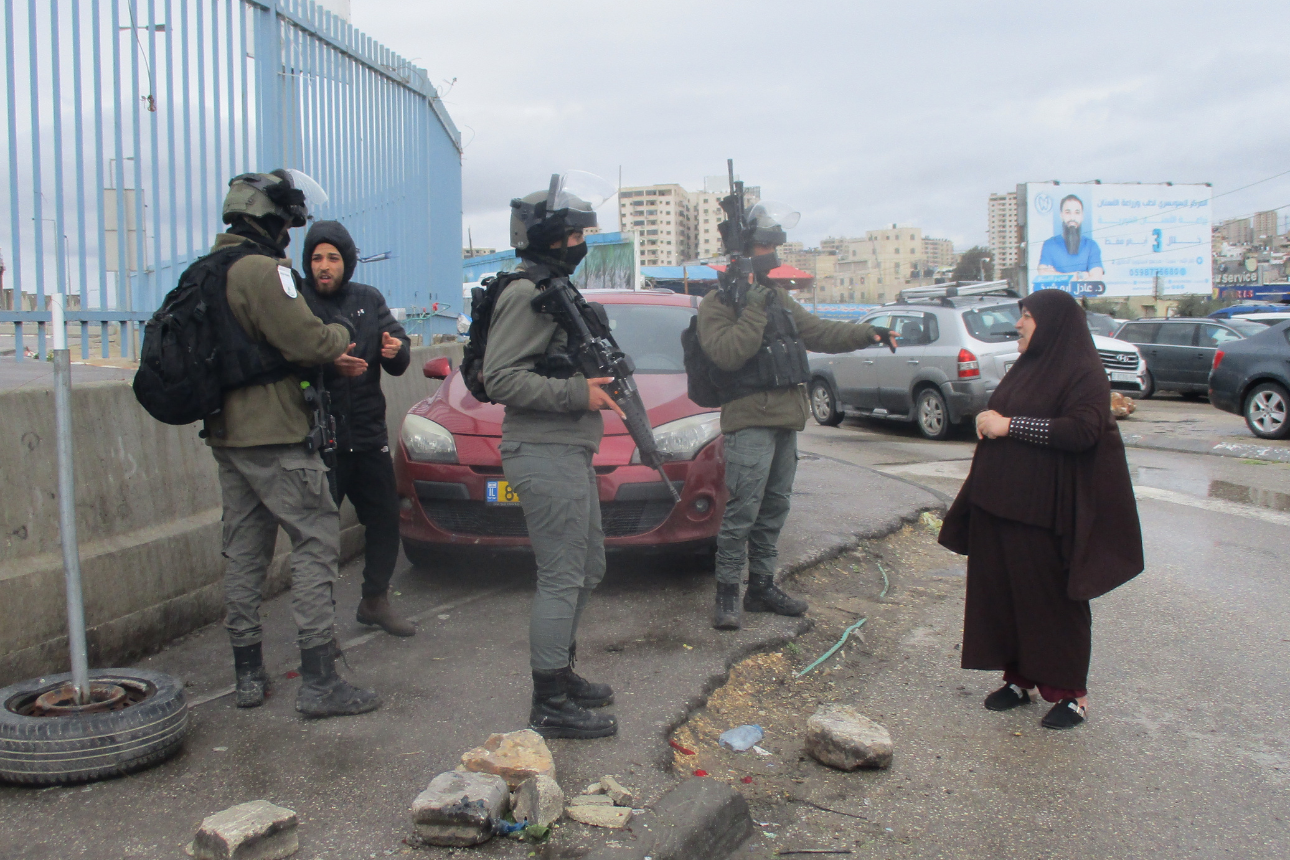
I am not a just woman, but I do not cooperate with the state’s crimes. I feel great shame about what is being done in my name, both in Gaza and the West Bank, in these dark times.
On the way to Qalandiya, the world was wrapped in fog. I wondered if they – those who knew they would likely be denied passage, those who anticipated contempt and even violence, those who saw the cold and wet weather – might not even bother to come to the place where they would face armed men, guns, and restrictions.
But as I parked in the Atarot Industrial Zone and began my long hike, braving the wind and the rain on the road to the checkpoint, I realized this was it – they would come, and so would I.
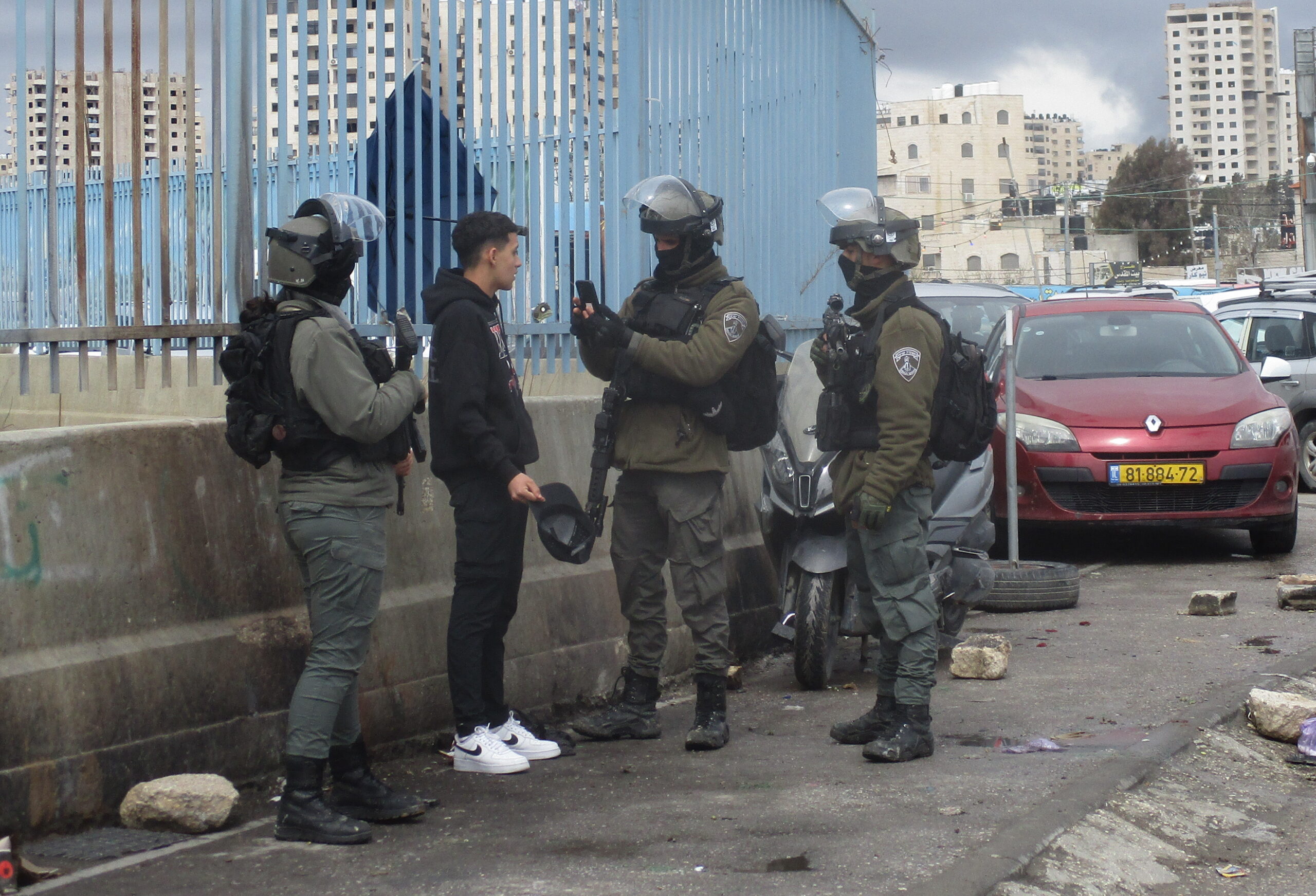
Indeed, despite the limitations, the weather, and the knowledge of the violent and humiliating treatment they would endure, they came. There weren’t thousands as in previous years, but there was a presence of elderly people filled with hope. Most of them were sent back down the hill.
Among the armed soldiers standing idle, there was a new addition this year: Three soldiers, two men and a woman, moved from the hilltop to inspect young people on their way to the checkpoint. They didn’t even attempt to reach the crossing, knowing what awaited them.
The soldiers began by stopping a young man who had gotten out of his father’s car to film a TikTok. One of the soldiers seized his phone and began to check its contents (a practice prohibited by Israeli law, but such laws hardly matter under occupation). Meanwhile, the two others stood facing the young man and his father, their guns pointed at them.
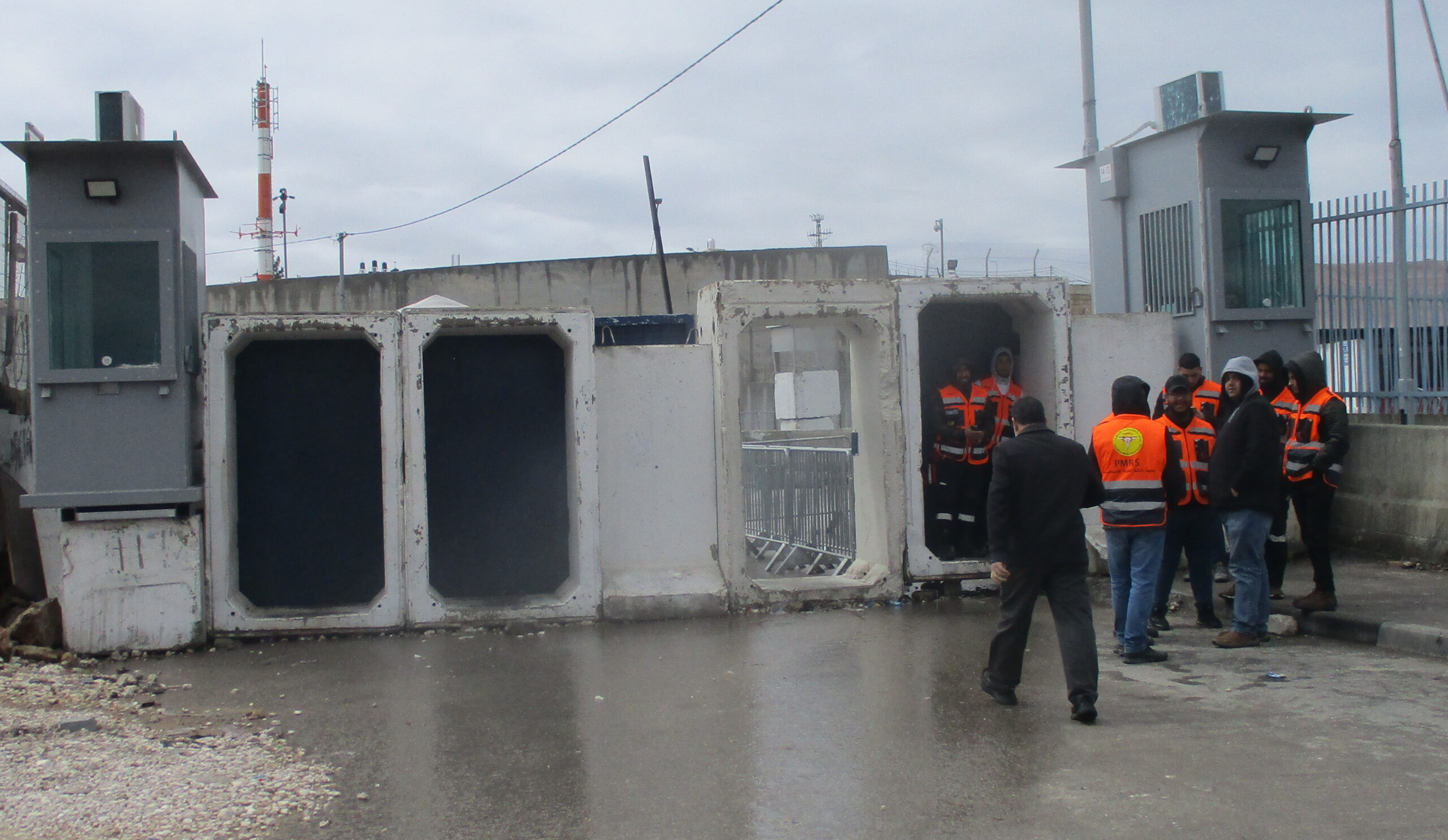
The young man’s mother rushed over to protect her son, only to be yelled at to return to the car. When she didn’t comply and the gun was pointed at her, I went over, put my arm around her, and whispered, urging her to return to the car. Eventually, the soldiers backed off, and the mother and son walked back to the car where her husband was waiting, unable to leave due to his disability.
Once the young man’s phone was cleared, the family was allowed to go, driving back to the Old City. The soldiers, however, moved on to their next victim, subjecting him to the same treatment and taking a photo of his face.
On my way back to Jerusalem, near the first checkpoint, I met a man heading in the opposite direction, from the checkpoint toward Palestine. We stopped side by side for a brief conversation.
The man, from Nablus, explained that he had obtained all the necessary documents in order to pray at Al Aqsa. He had left his home at dawn and driven for three and a half hours to reach Qalandiya. He passed through the first two inspection posts, but when he reached the checkpoint itself, he was stopped.
Why? He was blacklisted.
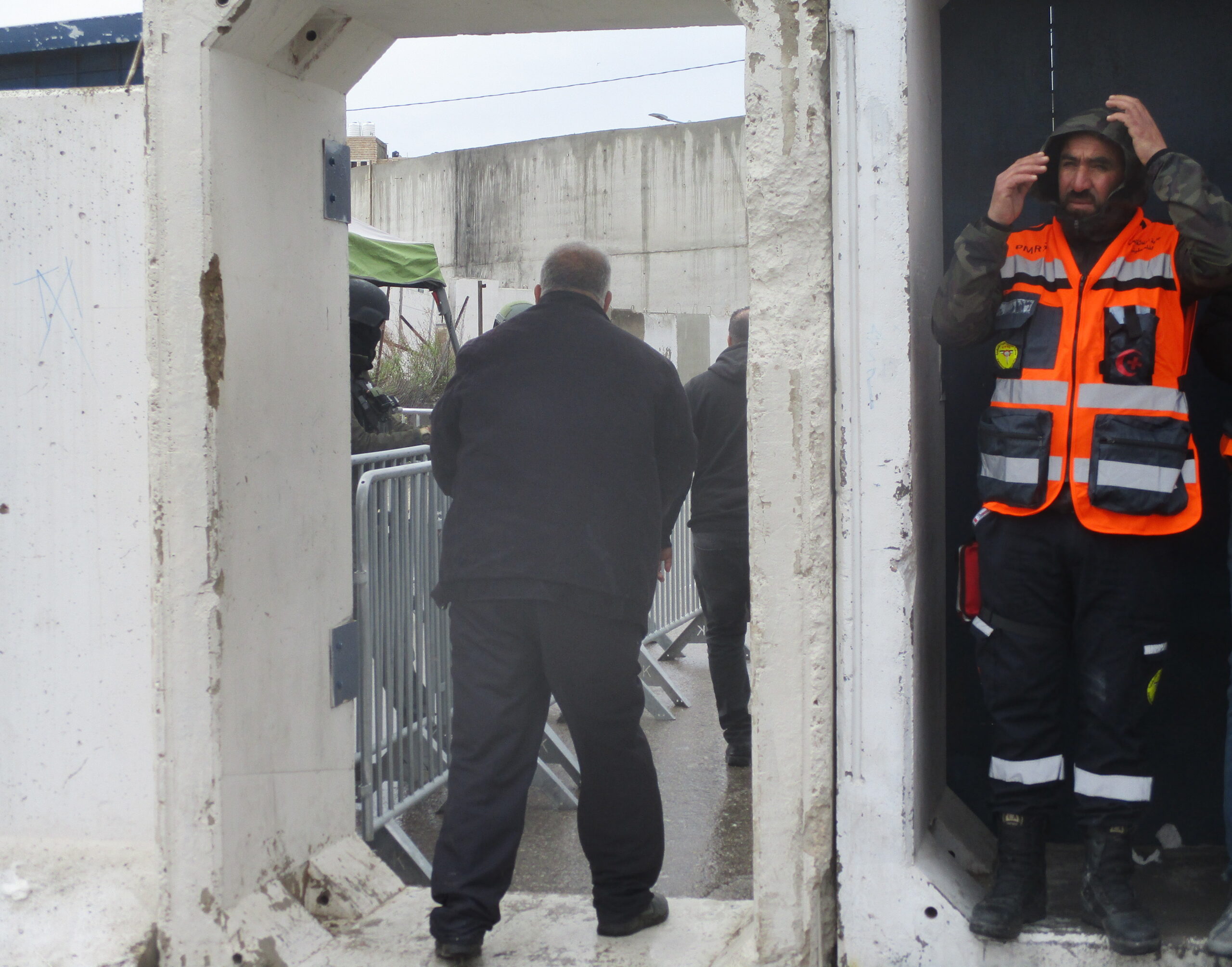
He assured me that he had no issues in the past. “I’ve never thrown even a single stone,” he said, defending himself. But despite his words, they held him tightly and pushed him out of the compound.
Primo Levi, in his account of the horrors he endured, wrote:
“Every time we were forced to witness an injustice or lower our heads to it – this was the shame that the Germans never knew, the shame the just man feels in the face of the sin another has committed. His conscience torments him because that sin exists, has entered the world without being eradicated, and because his own goodwill is minimal or entirely ineffective, unable to protect anyone.”
I quote Primo Levi, who is my guide.
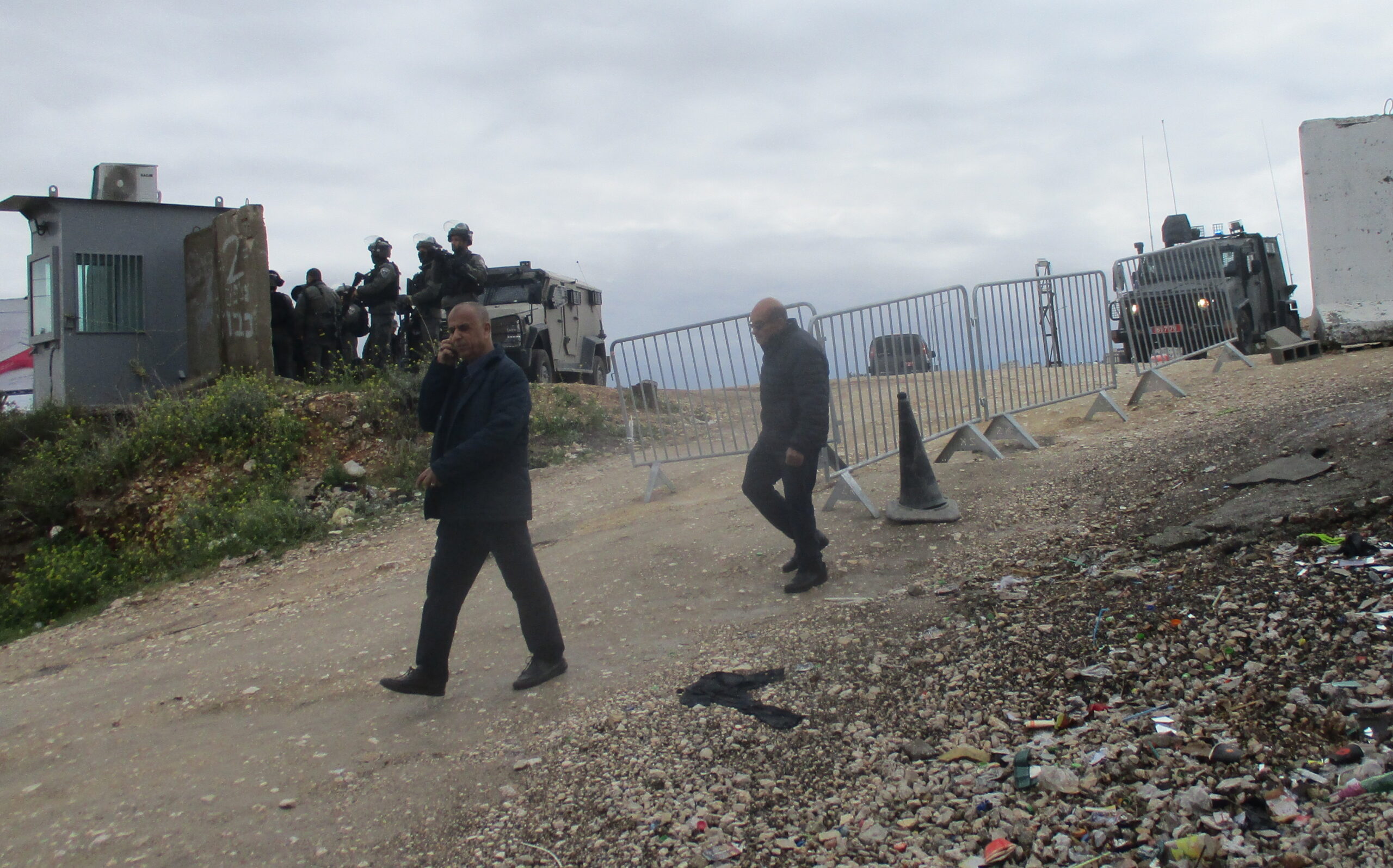
I am not a just woman, but I do not cooperate with the state’s crimes. I feel great shame about what is being done in my name, both in Gaza and the West Bank, in these dark times.
These are days when a black flag of political survival flies, under which the normalization of evil and injustice crosses more red lines with each passing day. Meanwhile, the media exercises selective reporting, choosing what to show and what to conceal in order to avoid offending the powers that be.
(The Palestine Chronicle)
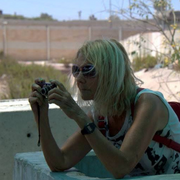
– As a member of Machsomwatch, Tamar Fleishman documents events at Israeli military checkpoints between Jerusalem and Ramallah. Her reports, photos and videos can be found on the organization’s website: www.machsomwatch.org. She is also a member of the ‘Coalition of Women for Peace’ and a volunteer in ‘Breaking the Silence’. Tamar Fleishman is The Palestine Chronicle correspondent at the Qalandiya checkpoint.

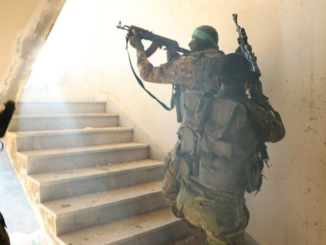
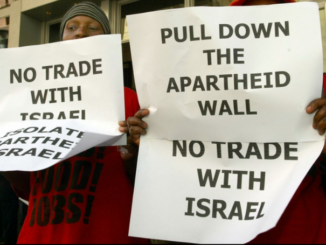
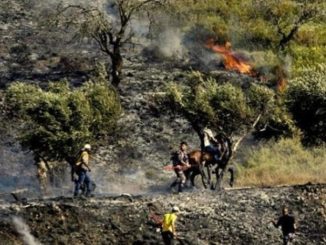




Be the first to comment